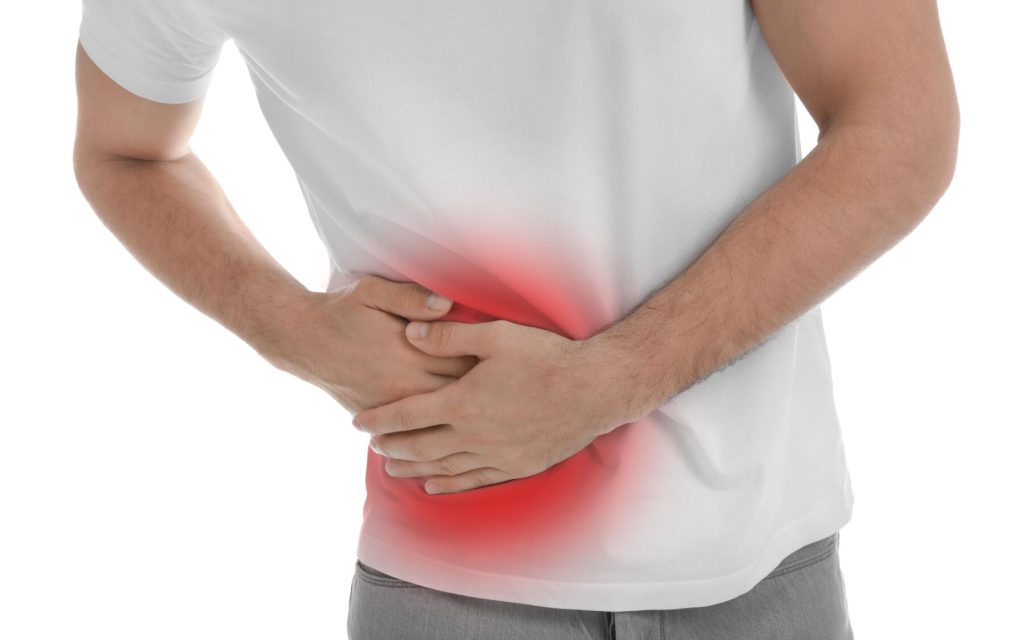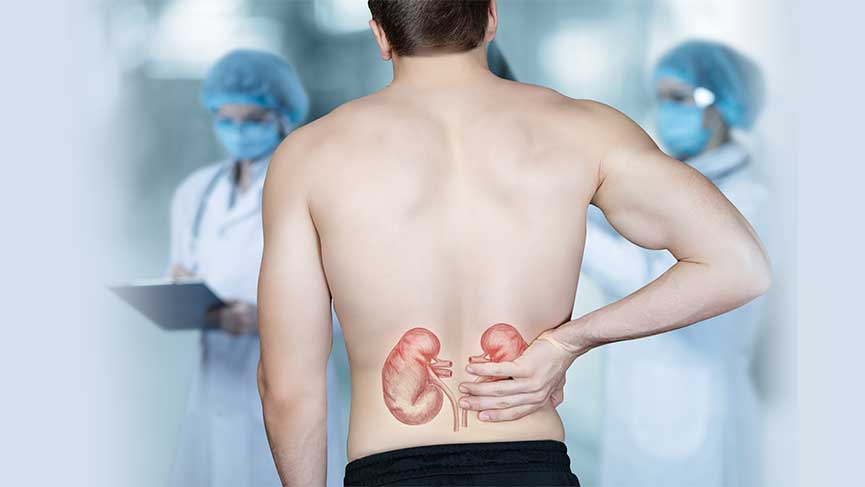What is Kidney pain –

Your kidneys are located in the back of your abdomen, below the ribs, on either side of the spine. Kidney pain is one of the most serious pains that you can experience. If you are having pain in your side or middle to upper back, it could be a problem of kidney pain. However, this does not mean that your kidneys have been damaged. Polycystic kidney disease, urinary tract infection and kidney infection are important reasons due to which kidney pain occurs.
Symptoms of kidney pain –
Many times it has been seen that with kidney pain, pain is felt only on one side of the back. If both kidneys are affected, pain will be on both sides. Kidneys work to maintain the balance of essential chemicals and water in the body. When working well, they meet the body’s needs and get rid of what it doesn’t need. Come, let’s talk about the symptoms of kidney pain.
- blood in urine
- fever and chills
- frequent urination
- diarrhea and vomiting
- pain that spreads to your waist
- pain or burning while urinating
- having fever
- blood or protein in urine
- Swelling of hands and feet and swelling around the eyes

Causes of kidney pain –
Blood clots in the kidney, stones, bleeding, infection, PKD and urine infection are some of the important reasons due to which you may have kidney pain. Let us know in detail what can be the causes of kidney pain –
kidney infection :
Pain in your kidneys can also occur due to spread of kidney infection. When bacteria enters your kidneys, it can cause infection. The bacteria that cause kidney infections usually enter the body through your urinary tract. Kidney infection can affect one kidney or both of your kidneys at a time. It is very important to treat kidney infection as soon as possible. If kidney infection is not treated on time, it can damage your kidneys. Also, due to this, other parts of the body can also be affected. Therefore, timely treatment of this problem is very important.
polycystic kidney disease :
Polycystic kidney disease is a genetic disease. This means that it occurs due to problems occurring in genes. A person may develop PKD due to growth of cyst inside the kidney. When the cysts grow larger, they start damaging the body tissues, due to which the person may become vulnerable to polycystic kidney disease. PKD causes chronic kidney disease (CKD), in which a person’s kidneys can even fail.
urinary tract infection :
Urinary tract infection is an infection in any part of your urinary system. Due to this, your kidneys, ureters, bladder and urethra can be affected. The risk of getting UTI is higher in women than in men. This problem can be quite painful. At the same time, if the problem of UTI spreads to the kidneys, it can cause a serious condition.
Treatment of kidney pain –
Treatment of kidney pain depends on the reasons due to which you are having kidney pain. If symptoms of infection appear in your body, your doctor may advise you to do a urine test. At the same time, to find out the cause of pain in your kidneys, you may also be advised to get an ultrasound or CT scan done. Through these tests, doctors find out the cause of kidney pain and start treatment, such as –
Treatment of kidney infection :

Kidney infections are treated with antibiotics. In case of kidney infection, the doctor may advise you to take antibiotics. Antibiotic medicine is given to the most common patients. After this, when the infection is detected in the test, depending on the type of infection, the doctor may give you some different antibiotics. At the same time, if your condition is very serious, then the doctor may also advise you to be admitted to the hospital.
Not only this, if kidney infection has occurred due to the size of your urinary tract or any other problem, then the doctor may also advise you to undergo surgery to prevent it in future.
Treatment of polycystic kidney disease :
The severity of polycystic kidney disease varies from person to person. Its severity can vary even among members of the same family. Often, patients with PKD between the ages of 55 and 65 reach the end stage of kidney disease. However, some patients with PKD also show mild symptoms. In such a situation, by identifying these symptoms and treating them on time, PKD can be prevented from reaching the final stage. In the treatment of polycystic kidney disease, an attempt is made to cure it in the early stages by reducing the symptoms and its complications.
UTI treatment :
Doctors usually treat UTI with antibiotics. You may also be advised to drink more water.